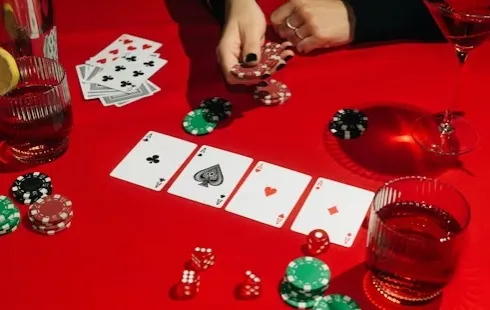
Ethical Innovation in iGaming: Why Social Responsibility is a Growth Driver for Soft2Bet
Section: Arts
After the controversial decision by the powerful insiders at the Kremlin to reinstate Vladimir Putin as the Russian president, as well as the election that seemingly legitimized it, there was a massive outcry from the public. Thousands protested in the streets, while the government continued its tradition of chosing its own successors yet again.
Government forces cracked down on the protesters as thousands of them took to the streets. This was followed by an update of the security laws and the allowances for law enforcement, which made it a costly crime to participate in unauthorized protests as well making it legal to prosecute organizers for any damage or violence which could have resulted from the protest.
The Russian Parliament has also introduced legislation which would attempt to censor the Internet by creating a specialized federal agency which would be empowered to shut down "infringing" websites, criminalize "defamation" on the Internet, a crime punishable with up to five years in prison as well as potentially $160,000 in fines. It will also force Internet service providers to install expensive censoring equipment to filter illegal content, which would be defined by the agency. The major effect of this means that dissent and protest will become increasingly difficult and dangerous, and the government has a large "grey zone" in which "illegal content" may be defined.
There have also been several arrests accompanying the protests. Currently the most famous case is that of the punk rock band Pussy Riot. The feminist musicians stormed the altar of Moscow's Cathedral of Christ the Saviour and performed a "punk rock prayer". This action came in reaction to the patriarch of the church calling for followers to vote for Putin. Russia does have a formal separation of Church and State, which makes this action very controversial.
Three members of the band have been imprisoned since February and have been presented with a ludicrous formal charge totaling 2,800 pages. Their defense has claimed several setbacks by the courts and the prisoners have been reported to be severely deprived of sleep and food. Several prominent politicians and human rights groups have campaigned for their release, and even the jury reportedly wanted to drop the charges before it was disbanded by the courts.
The three women are charged with "hooliganism" and may face up to 7 years in prison for their short performance. Two of the three artists have small children. The verdict was recently announced, and all three have been sentenced to two years in prison; a devastating charge, especially when considering their children and the severity of their "crime", which was a brief political statement in a public forum.
Another famous case is that of opposition leader and blogger Alexei Navalny being charged with theft while he was a regional adviser in 2009. He has publicly dismissed the charges as both "absurd" and "strange", as he was previously charged with a different crime on the same case. The change in the charge may carry up to ten years in prison if he is convicted. Until then, he has been conveniently placed under house arrest by the Russian authorities and may not leave his town without explicit police permission.
Alexei Navalny first gained public attention in the protests last December, when Putin's Russia United Party won under allegations of fraud. He acted as a centerpiece in many of the protests and managed to organize up to 100,000 people in the streets of Moscow. He was also charged with several crimes then and received short periods of jail time, though never anything as serious as this.
This comes at a time when Russia is also defending Syria's "right" to crack down on dissent and deny its citizens free speech in a public forum. In more recent developments, both Putin as well as the Russian Orthodox Church have asked that the judge either pardon, or at least render a mild sentence towards the three members of Pussy Riot which have been charged. While on the surface, this appears to show a more democratic and liberal direction, the reality of the court unfortunately does not mirror this. The judge, Marina Syrova, has reportedly denied almost every single defence objection as well as most defensive witnesses, among them Navalny, and has refused to examine the allegations that some of the prosecution's witness statements are forged.
The prosecution has been permitted to proceed unhindered. Some have compared the trial to Soviet Era show trials, which stood primarily as a public example, although its critics also cite a higher degree of justice during the Communist Era than has been present during the Pussy Riot trials.

Section: Arts

Section: Arts

Section: News
Section: Arts

Section: Business

Section: Arts

Section: Arts

Section: Business

Section: Business

Section: Arts
Health Insurance in Germany is compulsory and sometimes complicated, not to mention expensive. As an expat, you are required to navigate this landscape within weeks of arriving, so check our FAQ on PKV. For our guide on resources and access to agents who can give you a competitive quote, try our PKV Cost comparison tool.
Germany is famous for its medical expertise and extensive number of hospitals and clinics. See this comprehensive directory of hospitals and clinics across the country, complete with links to their websites, addresses, contact info, and specializations/services.
The couple Eva-Maria and Berthold Schneider has enthusiastically and expertly built an exquisite collection of Greek vases and other works of ancient small art over the years. Personal preferences often played a role in the acquisition of pieces. For instance, a rare oil vessel dating back to around...



No comments yet. Be the first to comment!